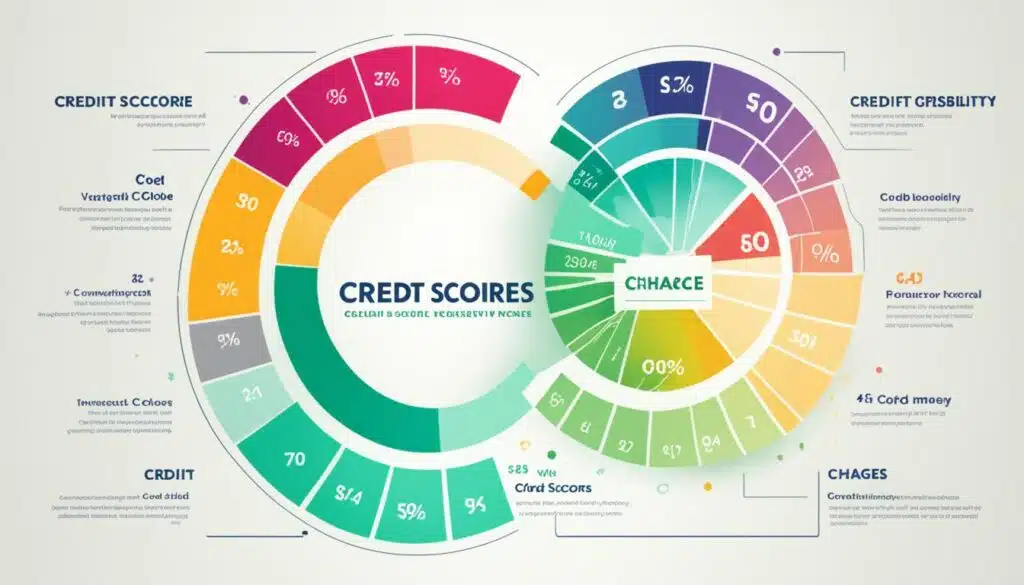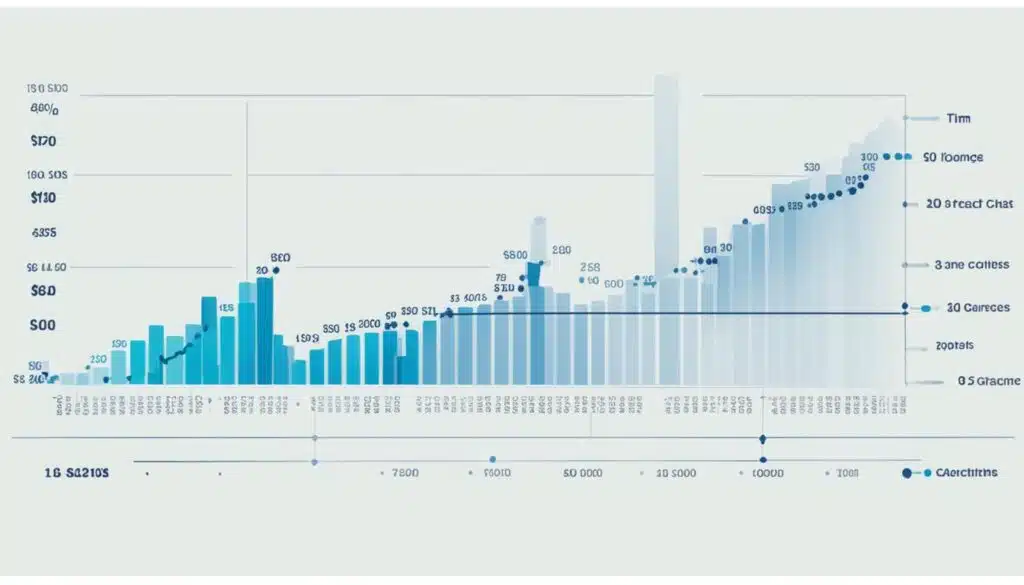What Is Finance Charge : A finance charge is a fee charged for the use of credit or the extension of existing credit. It can be a flat fee or a percentage of the borrowed amount. Finance charges are a form of compensation to the lender for providing funds or credit to the borrower. They can include interest payments, origination fees, transaction fees, and other charges associated with borrowing money. Finance charges allow lenders to make a profit and are regulated by laws such as the Truth in Lending Act, which requires lenders to disclose all interest rates and fees to consumers.
Key Takeaways: What Is Finance Charge
- A finance charge is a fee charged for the use of credit or the extension of existing credit.
- It can include interest payments, origination fees, transaction fees, and other charges associated with borrowing money.
- Finance charges are regulated by laws such as the Truth in Lending Act, which requires lenders to disclose all interest rates and fees to consumers.
- Understanding finance charges is crucial for managing borrowing costs and making informed financial decisions.
- By comparing different lenders and understanding the terms and conditions of credit agreements, borrowers can reduce the impact of finance charges and save money over time.
Types of Finance Charges
When obtaining credit, borrowers may encounter different types of finance charges. Both loans and credit cards have their own distinct finance charges that borrowers should be aware of.
Finance Charges on Loans
For loans, finance charges can include:
- Interest charges: This is the cost of borrowing the money and is typically calculated as a percentage of the loan amount.
- Loan origination fees: These fees are charged by the lender for processing the loan application.
- Account setup fees: These charges may apply when setting up a new loan account.
- Other charges specific to the type of loan: Depending on the loan, there may be additional fees such as appraisal fees for a mortgage or processing fees for a personal loan.
Finance Charges on Credit Cards
Credit cards also have finance charges, including:
- Interest charges on the outstanding balance: If you don’t pay your credit card balance in full each month, you’ll be charged interest on the remaining balance.
- Annual fees: Some credit cards charge an annual fee for the privilege of using the card.
- Late payment fees: If you miss a credit card payment deadline, you may be charged a late payment fee.
- Foreign transaction fees: When using a credit card for transactions in a foreign currency, a fee may be applied.
The specific types and amounts of finance charges may vary between lenders and credit card issuers, so it’s important to carefully review the terms and conditions before obtaining credit.
| Loan Finance Charges | Credit Card Finance Charges |
|---|---|
| Interest charges | Interest charges on the outstanding balance |
| Loan origination fees | Annual fees |
| Account setup fees | Late payment fees |
| Other charges specific to the type of loan | Foreign transaction fees |
Also Read :Is A Finance Major Right For You? Explore Now
How Finance Charges Are Calculated

Finance charges can be calculated in different ways depending on the type of credit. For loans, finance charges are often calculated as a percentage of the loan amount. Credit cards may use methods such as the average daily balance or the previous balance to calculate finance charges. Each credit card issuer may have its own method of calculating finance charges, so it is important to review the terms and conditions of the credit card agreement to understand how finance charges are calculated.
When it comes to loans, the finance charge is commonly calculated as a percentage of the loan amount. For example, if the finance charge is 5% and the loan amount is $10,000, the finance charge would be $500. This percentage may vary depending on factors such as the borrower’s creditworthiness and the terms of the loan.
For credit cards, finance charges are typically calculated based on the unpaid balance and the annual percentage rate (APR). There are different methods used to determine the unpaid balance, such as the average daily balance method or the previous balance method. These methods may take into account factors such as new purchases, payments, and interest accrual.
| Loan Type | Method of Calculation |
|---|---|
| Personal Loan | Percentage of the loan amount |
| Mortgage Loan | Percentage of the loan amount or interest based on the outstanding balance |
| Auto Loan | Percentage of the loan amount or interest based on the outstanding balance |
| Credit Card | Unpaid balance calculation method (average daily balance or previous balance) |
It is important to review the terms and conditions of your credit card agreement to understand how finance charges are calculated for your specific credit card. This information can usually be found in the credit card disclosure statement or in the terms and conditions provided by the credit card issuer.
Understanding how finance charges are calculated allows borrowers to budget effectively and make informed decisions about borrowing and repayment. By knowing how finance charges are determined, borrowers can better compare different loan options and credit card offers to find the most suitable and cost-effective solution.
As the saying goes, knowledge is power. By understanding finance charges and the associated calculation methods, individuals and businesses can take control of their finances and make well-informed financial decisions.
Also Read :Maximize Savings With Security Premium Finance
Impact of Creditworthiness on Finance Charges

Creditworthiness plays a significant role in determining finance charges for borrowers. Lenders assess the creditworthiness of individuals based on factors such as credit score and credit history to gauge their ability to repay borrowed funds. This assessment then influences the interest rates and other finance charges imposed on borrowers.
Borrowers with higher credit scores and good credit histories are generally considered less risky by lenders. As a result, they may be eligible for lower interest rates and finance charges on their loans and credit cards. The favorable creditworthiness allows these borrowers to save money by paying reduced finance charges.
On the other hand, borrowers with lower credit scores may face higher interest rates and finance charges. Lenders perceive them as more of a risk due to their credit history, and therefore charge higher finance charges as a means of mitigating that risk. These borrowers may end up paying more in interest and fees, increasing the overall cost of borrowing.
To illustrate the impact of creditworthiness on finance charges, consider the following table:
| Creditworthiness | Interest Rate | Finance Charges |
|---|---|---|
| Excellent (Credit Score: 800+) | 3% | $500 |
| Good (Credit Score: 700-799) | 5% | $1,000 |
| Fair (Credit Score: 600-699) | 8% | $2,000 |
| Poor (Credit Score: below 600) | 12% | $3,500 |
This table demonstrates how different creditworthiness levels can result in varying interest rates and finance charges. As creditworthiness decreases, the interest rates and finance charges increase proportionally. Therefore, maintaining a good credit score and credit history is essential for borrowers to secure more favorable financial terms.
Improving creditworthiness can have a significant impact on finance charges. By adopting responsible financial habits, such as paying bills on time, reducing debt, and using credit responsibly, borrowers can improve their creditworthiness over time. This, in turn, can help them secure lower interest rates and finance charges in the future.
By understanding the relationship between creditworthiness and finance charges, borrowers can make informed decisions to manage their borrowing costs effectively. It is crucial to regularly monitor credit reports, dispute any inaccuracies, and take proactive steps to maintain or improve creditworthiness.
Also Read :Easy Cars On Finance Options For You
How to Save Money on Finance Charges

When it comes to managing your finances, finding ways to save money on finance charges can make a significant difference. By taking the right steps, you can avoid unnecessary fees and reduce the amount you pay in interest. Here are some strategies to help you minimize finance charges:
- Pay off credit card balances in full: One of the most effective ways to avoid finance charges on credit cards is to pay off the full outstanding balance each month. By doing so, you can eliminate the need to pay any interest charges.
- Make extra payments on loans: If you have outstanding loans, making extra payments can be an excellent way to reduce the outstanding balance and lower the amount of interest charged over time. By paying more than the minimum required amount, you can chip away at the principal faster and save on finance charges.
- Compare lenders and credit card issuers: Shopping around and comparing different lenders and credit card issuers can help you find lower interest rates and finance charges. Take the time to research and compare offers to ensure you’re getting the best deal.
It is important to read and understand the terms and conditions of credit agreements to avoid any surprise finance charges. By staying informed and taking proactive steps, you can save money and reduce the impact of finance charges on your financial journey.
Example:
“Paying off credit card balances in full each month is a smart way to avoid finance charges and minimize your borrowing costs. It’s like getting an interest-free loan for the amount you owe.”
| Strategies to Save Money on Finance Charges | Impact |
|---|---|
| Pay off credit card balances in full | Avoid interest charges entirely |
| Make extra payments on loans | Reduce outstanding balance and amount of interest charged over time |
| Compare lenders and credit card issuers | Find lower interest rates and finance charges |
Incorporating these strategies into your financial planning can help you save money and manage your borrowing costs effectively. By prioritizing financial literacy and being proactive in your financial decisions, you can avoid unnecessary finance charges and achieve your financial goals.
Also Read :Achieve Your Goals With Freedom Finance Services
Finance Charges and Regulation

Finance charges are subject to government regulation to protect consumers. One of the key regulatory laws is the Truth in Lending Act. This act ensures that lenders disclose all relevant information about finance charges to borrowers.
The Truth in Lending Act mandates that lenders provide clear and accurate details of interest rates, standard fees, and penalty fees to consumers. By disclosing this information, borrowers can make informed decisions about obtaining credit and understand the finance charges they will incur.
Another important regulation that governs finance charges is the Credit Card Accountability Responsibility and Disclosure (CARD) Act. This act provides additional protections for consumers who use credit cards. It includes provisions such as minimum grace periods before interest charges can be assessed on new purchases, preventing credit card issuers from immediately charging interest.
The Consumer Financial Protection Bureau (CFPB) plays a crucial role in overseeing and enforcing these regulations. Their mandate is to ensure that consumers have access to transparent and fair financial products and services. By monitoring compliance with finance charge regulations, the CFPB helps protect consumers from unfair practices and promotes financial well-being.
In summary, finance charges are regulated to ensure transparency and protect consumers. The Truth in Lending Act and the CARD Act establish guidelines for the disclosure of finance charges, allowing borrowers to make informed financial decisions. The CFPB plays a vital role in overseeing compliance and safeguarding consumer interests.
Also Read :Best Way To Invest Money UK In 2024
Common Types of Finance Charges
When borrowing money, borrowers may encounter various types of finance charges that can impact their overall borrowing costs. It’s important to understand these common finance charges to effectively manage personal finances and make informed decisions. The most common types of finance charges include:
- Interest Charges: Whether it’s a credit card balance or a loan, interest charges are a significant component of finance charges. This is the cost of borrowing money and is usually calculated as a percentage of the outstanding balance or the loan amount.
- Annual Fees: Many credit cards come with annual fees that are charged for the privilege of using the card. These fees can vary depending on the type of card and the issuer. Credit card annual fees can range from a few dollars to a few hundred dollars per year.
- Late Payment Fees: Late payment fees are charged when borrowers miss the due date for their credit card or loan payments. These fees can vary depending on the lender or credit card issuer and may be a flat fee or a percentage of the overdue amount.
- Account Maintenance Fees: Some financial institutions charge account maintenance fees to cover the costs of managing and servicing a loan or credit account. These fees can be charged monthly or annually and may vary depending on the type of account and the financial institution.
- Transaction Fees: Transaction fees are common in various financial transactions, such as balance transfers, cash advances, or foreign currency exchanges. These fees are charged in addition to the interest charges and are typically a percentage of the transaction amount or a flat fee.
Being aware of these common finance charges is essential for borrowers to effectively manage their borrowing costs and avoid surprises. It is recommended to carefully review the terms and conditions of credit agreements and loan agreements to understand the specific finance charges associated with each borrowing arrangement.
Also Read :Discover Top Online Earn Money Platforms Now!
How Finance Charges Affect Borrowing Costs

Finance charges can have a significant impact on borrowing costs, resulting in higher expenses for borrowers. When borrowers take out loans or use credit cards, they not only repay the principal amount borrowed but also incur finance charges, such as interest rates and fees. These additional costs can accumulate over time, making it essential for borrowers to effectively manage their borrowing costs and minimize the impact of finance charges.
High interest rates are a common component of finance charges. When borrowers have higher interest rates on their loans or credit card balances, the total amount repaid increases. This means that borrowers end up paying more in interest charges, resulting in a higher overall cost of borrowing. Additionally, fees like annual fees, late payment fees, and transaction fees can add to the total finance charges, further increasing the borrowing costs.
To manage borrowing costs effectively, borrowers must understand the terms and conditions of their credit agreements. It is crucial to review and compare the interest rates and fees offered by different lenders and credit card issuers. By selecting options with lower interest rates and minimal fees, borrowers can reduce their finance charges and keep their borrowing costs in check.
Timely payments are also crucial for managing borrowing costs. Making payments on time not only helps avoid late payment fees but also prevents additional interest charges from accumulating. By paying off credit card balances in full each month, borrowers can eliminate the need for interest payments altogether, resulting in significant savings over time.
Effective management of borrowing costs can have a positive impact on a borrower’s overall financial situation. By minimizing the cost of finance charges, borrowers can save money and maintain a healthy credit score. It allows them to allocate their financial resources more efficiently and provides them with greater control over their financial well-being.
Comparing the Impact of Finance Charges on Borrowing Costs
| Scenario | Total Amount Borrowed | Interest Rate | Finance Charges | Total Amount Repaid |
|---|---|---|---|---|
| Loan A | $10,000 | 8% | $2,400 | $12,400 |
| Loan B | $10,000 | 12% | $3,600 | $13,600 |
| Credit Card A | $5,000 | 15% | $1,250 | $6,250 |
| Credit Card B | $5,000 | 20% | $2,000 | $7,000 |
The table above compares the impact of different finance charges on borrowing costs. As shown, a higher interest rate or fee percentage results in higher finance charges and, consequently, a higher total amount repaid. It emphasizes the importance of carefully considering finance charges and their implications when selecting loans or credit cards.
Strategies to Avoid or Minimize Finance Charges

When it comes to managing your finances, avoiding unnecessary fees and charges can make a significant difference in your overall financial health. Here are some strategies to help you avoid or minimize finance charges:
Paying off Credit Card Balances in Full
One of the most effective ways to avoid paying finance charges on credit cards is to pay off your balances in full each month. By doing so, you can avoid accumulating interest charges on the outstanding balance. This strategy can save you a substantial amount of money in the long run.
Making Extra Payments on Loans
If you have a loan, such as a car loan or a personal loan, making extra payments can help reduce your outstanding balance faster. By doing so, you not only minimize the amount of interest charged over time, but you can also potentially pay off the loan earlier than the scheduled term.
Comparing Lenders and Credit Card Issuers
When looking for loans or credit cards, it’s essential to compare different lenders and credit card issuers to find the best interest rates and finance charges. By shopping around, you can potentially find lower rates and save money on finance charges.
Regularly Reviewing Credit Agreements and Bill Statements
It’s crucial to review your credit agreements and bill statements regularly to identify any potential errors or unnecessary finance charges. By staying informed about the terms and conditions of your credit agreements, you can avoid surprises and ensure that you are not paying more than necessary.
Practice Financial Discipline
In addition to these strategies, practicing financial discipline is essential to reduce finance charges. This includes making payments on time, avoiding unnecessary purchases, and managing your credit responsibly. By being mindful of your spending habits, you can minimize interest charges and keep your finances in check.
By implementing these strategies and being proactive in managing your finances, you can avoid paying unnecessary finance charges and minimize the impact on your overall financial well-being.
The Cost of Finance Charges Over Time

Over time, finance charges can have a significant impact on the total cost of borrowing. Whether it’s a long-term mortgage loan or carrying credit card balances, the accumulation of finance charges can result in borrowers paying much more than they initially borrowed.
Let’s take a look at the example of a long-term mortgage loan. The total amount of interest paid over the course of the loan can often exceed the original principal loan amount. This means that borrowers end up paying a substantial amount in finance charges, which can significantly increase the overall cost of the loan.
Similarly, credit card borrowers who only make minimum payments and continue to carry a balance can find themselves paying a substantial amount in interest charges over time. As finance charges continue to accrue on the outstanding balance, the cost of borrowing can become increasingly burdensome.
It is crucial for borrowers to carefully consider the long-term impact of finance charges and make informed decisions about their borrowing and repayment strategies. By understanding the true cost of finance charges over time, borrowers can take proactive steps to minimize their financial burden and save money.
Managing the Long-Term Impact of Finance Charges
To effectively manage the long-term impact of finance charges, borrowers can employ several strategies:
- Pay more than the minimum payments on credit cards: By paying more than the minimum required payment each month, borrowers can reduce the outstanding balance and minimize the amount of interest charged.
- Consider refinancing options: For long-term loans, such as mortgages, refinancing at a lower interest rate can help reduce the overall cost of finance charges over time.
- Shop around for competitive rates: Comparing different lenders and credit card issuers can help borrowers find lower interest rates and finance charges.
By being proactive and vigilant in managing borrowing costs, borrowers can mitigate the long-term impact of finance charges and save money in the process.
Importance of Understanding Finance Charges

Understanding finance charges is crucial for effective financial management. When borrowers have a clear understanding of the types of finance charges they may encounter and how these charges are calculated, they are empowered to make informed decisions about borrowing and repayment. By enhancing their financial literacy, individuals and businesses can avoid unnecessary fees and interest charges, thereby managing their borrowing costs more effectively.
Better Decision-Making
When borrowers understand finance charges, they are better equipped to evaluate different borrowing options and choose the most cost-effective one. By comparing the finance charges associated with various loans or credit cards, borrowers can select options with lower interest rates or fewer fees, ultimately saving money in the long run.
Budgeting and Planning
Knowledge of finance charges enables borrowers to budget and plan their finances more effectively. By factoring in anticipated interest charges and fees, borrowers can accurately estimate their borrowing costs and incorporate them into their monthly budgets. This proactive approach helps borrowers avoid financial strain and ensure they can comfortably manage their loan or credit card payments.
Minimizing Debt
Understanding finance charges goes hand in hand with managing and minimizing debt. When borrowers comprehend the impact of finance charges on their overall debt, they are motivated to reduce outstanding balances quickly and avoid accumulating unnecessary interest charges. By making extra payments toward principal amounts or paying off credit card balances in full each month, borrowers can reduce the total amount of finance charges they incur.
| Benefits of Understanding Finance Charges | How to Achieve It |
|---|---|
| Make informed borrowing decisions | Educate oneself about finance charges through research and reliable sources |
| Create accurate budget plans | Factor in anticipated finance charges when planning monthly budgets |
| Minimize interest charges and fees | Make extra payments on loans and pay off credit card balances in full |
By understanding finance charges and actively managing borrowing costs, borrowers can not only save money but also maintain a healthy credit score. Financial literacy and a comprehensive understanding of finance charges lay the foundation for sound financial decision-making and long-term financial well-being.
Also Read : Easy Cars On Finance Options For You
Conclusion
Finance charges play a significant role in the borrowing process, impacting the costs associated with credit and loans. These charges can include interest fees, various additional fees, and other charges linked to borrowing money. Understanding finance charges is crucial for individuals seeking to manage their borrowing costs and make informed financial decisions.
By comparing different lenders and credit card issuers, borrowers can identify opportunities to minimize finance charges. Paying off credit card balances in full each month and making additional payments on loans can help reduce the impact of finance charges over time. It’s important to carefully review credit agreements and bill statements to ensure clarity on the applicable charges.
Additionally, keeping up to date with applicable regulations, such as the Truth in Lending Act and the Credit Card Accountability Responsibility and Disclosure (CARD) Act, can provide further insight into the rights and protections available to borrowers. By actively managing finance charges, individuals can save money and maintain a healthy credit score.
FAQs
Q: What is a finance charge?
A: A finance charge is any charge on a credit card that accrues interest. It includes interest, transaction fees, and other charges imposed by the creditor, such as an annual fee or foreign transaction fees.
Q: How is a finance charge on a credit calculated?
A: The finance charge on a credit card is usually calculated based on the average daily balance, the annual percentage rate (APR), and the number of days in the billing cycle.
Q: What is the impact of a finance charge on my credit score?
A: Paying finance charges on time and in full can positively impact your credit score, as it shows responsible credit card management.
Q: How can I avoid paying finance charges on my credit card?
A: To avoid paying finance charges, you can pay your credit card bill in full by the due date every month, utilize an introductory 0% APR offer, or consider a balance transfer to a card with lower or no interest.
Q: What are the common types of finance charges on a credit card?
A: Common types of finance charges on a credit card include interest rates, cash advance fees, transaction fees, annual fees, and foreign transaction fees.
Q: What happens if I don’t pay my finance charges?
A: If you don’t pay your finance charges, it can lead to late fees, accrual of more interest, and negative effects on your credit score. It’s crucial to pay your finance charges to avoid these consequences.
Q: How does a finance charge affect my minimum payment?
A: The finance charge adds to the amount you need to pay, impacting the minimum payment required on your credit card statement. Failure to cover the minimum payment can result in additional penalties and interest charges.









